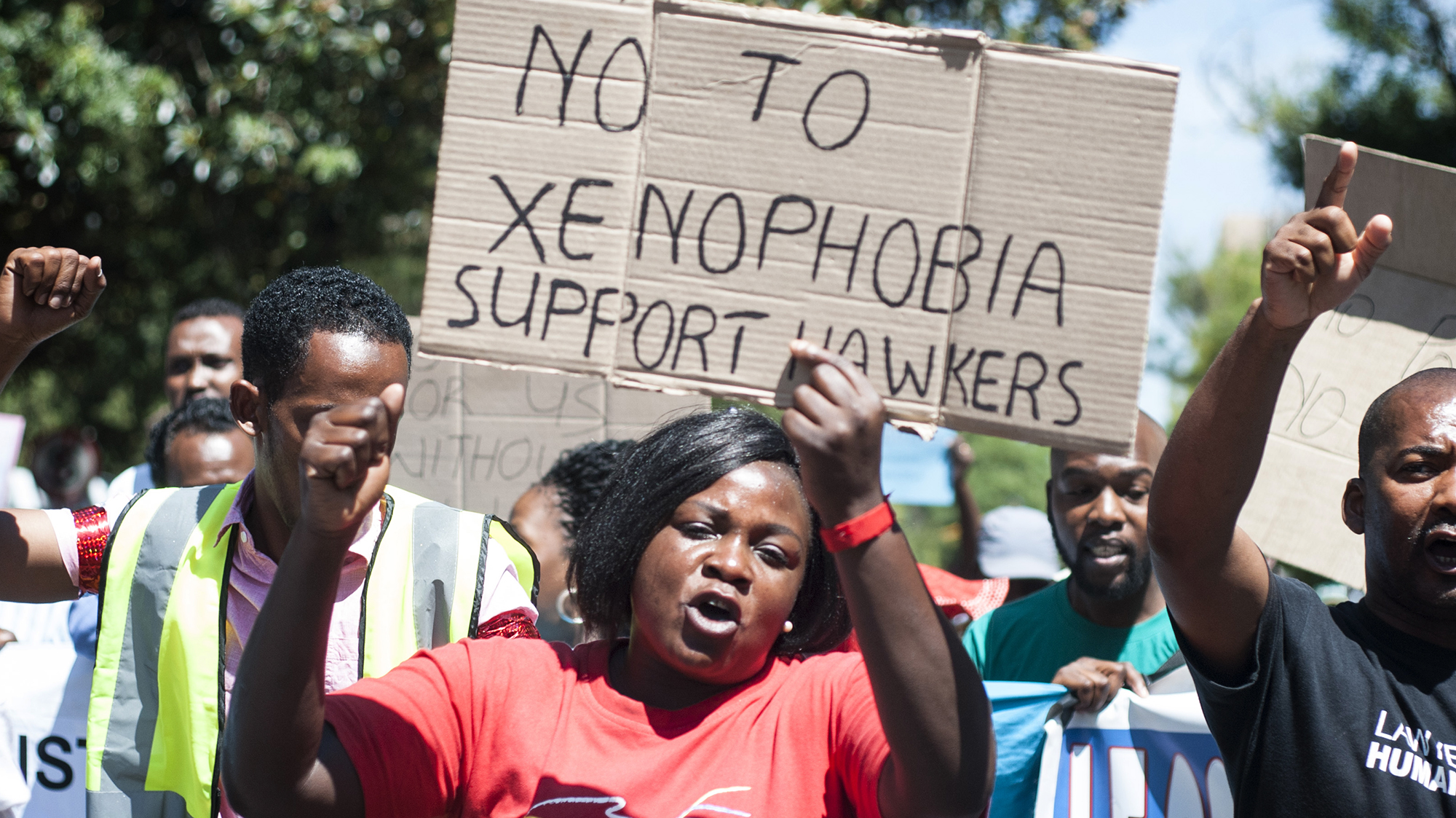First published by ISS Today
As predicted, the run-up to South Africa’s election on Wednesday included outbursts in xenophobic political rhetoric and violence against foreigners. Responses – official and unofficial – ignore the distinct xenophobic experiences of migrant women, including but not limited to sexual violence.
Migration in South Africa is typically viewed through a male lens. Xenophobia is driven by an ill-conceived narrative that able-bodied “illegal” men are flooding into the country to take jobs from deserving citizens, commit crimes and “steal” South African women. This narrative is in turn used to justify harsh government responses.
Most reports and media coverage on xenophobia cite statistics related to death, displacement, looting and destruction of property, but make scant mention of sexual or gender-based violence. Yet in a 2018 Institute for Security Studies (ISS) report on migrant women in South Africa, most women cited gender-based or sexual violence as one of their top threats.
A refugee from the Democratic Republic of the Congo – who was raped repeatedly before she left her home country – said that in Isipingo, just south of Durban on South Africa’s east coast, attackers went “door to door, shouting in their language”.
She pleaded with them to leave her twin daughters alone, so the girls were taken to another room while the attackers raped their mother. “I couldn’t cry because my girls were there,” she said. “I don’t know what will happen to me the day that they get my girls. I have done so much to protect them. I don’t know if I will live.”
The number of African women migrating to South Africa is growing substantially. The United Nations Department of Economic and Social Affairs (UN DESA) estimates that the number of woman migrants in 2017 (1.8-million) had more than quadrupled since 2001 (400,000). Women now comprise 44% of the total migrant population.
Most are African. They come from a range of conditions and arrive seeking asylum, work, education, or the opportunity to live in a country with relatively high gender equality. Many come seeking economic and educational opportunities not available to women in their own countries. Some have valid immigration documents; others arrive or stay irregularly. A growing number are travelling independently of spouses or partners and this number is expected to keep increasing.
Women’s migration pathways and experiences are distinct from those of men and involve greater exposure to violence. Globally, 80% of trafficking victims are women. Woman migrants are at heightened risk of sexual violence, exploitation, forced labour, abuse and health vulnerabilities. They are more likely to work in less regulated and less visible sectors.
South Africa has particularly high levels of gender-based violence and femicide. In March, President Cyril Ramaphosa labelled gender-based violence a national crisis. Migrant women are no exception.
The ISS study revealed many experiences and threats of sexual violence and very low trust of authorities, particularly among undocumented or irregular migrant women. They are unlikely to report incidents to authorities. Woman migrants in the study described many xenophobic experiences, including sexual harassment by civil servants and government representatives.
A Zimbabwean migrant who travelled to South Africa with her husband said that at the border, officials pretended to stamp their passports and then separated them, “and a man tried to rape me. They told my husband to get on the bus, but instead, he fought to find me and saved me”.
In South Africa, migrant women face triple discrimination with xenophobia, racism and misogyny – factors which overlap. A recent spate of xenophobic violence coincided with the 25 March launch of the Department of Justice’s long-awaited National Plan (NAP) to Combat Racism, Racial Discrimination, Xenophobia and Related Intolerance. Media and civil society say the plan is superficial and fails to treat xenophobia and its causes as distinct problems.
Although the NAP refers to xenophobia and gender discrimination, it never references them together. It provides important history and context for other forms of discrimination but doesn’t consider how migrant women are subjected to heightened risks or targeted discrimination.
The plan itemises gender-based violence only under sections addressing discrimination against lesbian, gay, bisexual, transgender and intersex (LGBTI) people. The sole mention of rape in the entire 67-page document refers to “corrective rape” targeting LGBTI people.
This position mirrors that of the Department of Home Affairs. Its 2017 White Paper on International Migration – the policy statement guiding the comprehensive review of immigration legislation – mentions women twice in 82 pages and offers no gendered data or considerations.
Xenophobic attitudes pave the way for government action that punishes migrants. Throughout this election campaign, leading South African political parties have perpetuated the exaggerated narrative of the ‘illegal’ migrant threat and the need to further secure borders and prevent irregular migration.
The most controversial ongoing plan, supported by the African National Congress and the Democratic Alliance, involves constructing controversial asylum processing centres at the borders. There are already restrictions in place to deter people from seeking asylum in South Africa. These include closing refugee reception offices and restricting asylum seekers’ rights to work, study or be self-employed.
All proposals to date are gender-neutral and don’t consider the effects on women or children. Yet restrictive policies disproportionately affect women and other vulnerable migrants. Research shows that deterrent measures don’t reduce migration volumes; they merely drive more people to follow irregular migration paths.
Intentionally hindering vulnerable people from seeking asylum to deter others from coming to South Africa for refuge is both ineffective and cruel. This is not the record South Africa should seek while claiming to uphold human rights. Advancing rights-based gender-sensitive migration policies and practices must be a priority to avoid putting women at further risk. DM
Aimée-Noël Mbiyozo is Senior Research Consultant, Migration, ISS




